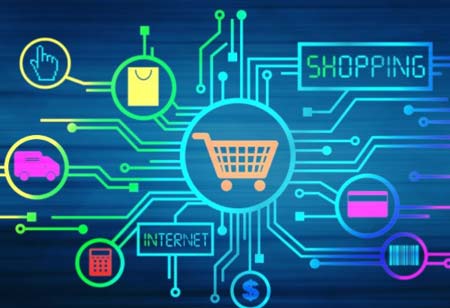THANK YOU FOR SUBSCRIBING
E-Commerce to Gain more Pace in the Coming Days
However, since staying COVID-secure is a key obligation for all retailers, regardless of country, a traditional in-person Black Friday was never a viable option this year.

By
Apac CIOOutlook | Monday, May 03, 2021
Stay ahead of the industry with exclusive feature stories on the top companies, expert insights and the latest news delivered straight to your inbox. Subscribe today.
However, since staying COVID-secure is a key obligation for all retailers, regardless of country, a traditional in-person Black Friday was never a viable option this year.
Fremont, CA : Society has had to change its behavior quickly in the eight months after the World Health Organization announced a global pandemic. Individuals and companies have faced challenges ranging from the use of masks to social distancing. The high street has been particularly hard hit by appeals for people to stay at home, along with non-essential shops closing intermittently across Europe.
Instead of going to the store, customers have unlocked their phones and fired up their computers to make purchases. Online shopping has been the rule for a long time – just look at Amazon's omnipotence, which has made founder and CEO Jeff Bezos the richest man on the planet – but e-commerce has exploded at a breakneck pace over the course of the pandemic. According to eMarketer, e-commerce will account for 27.5 percent of overall UK retail sales in 2020, up from 21.8 percent in 2019, and will account for nearly a third by 2024. More dramatically, e-commerce revenues in France are expected to increase 17.1 percent in 2020 compared to 2019, while Germany is expected to increase 16.2 percent.
This is not a passing fad. And if the high streets recover consciousness, this is an evolution that will not return to the status quo. Eight months is a long time for new behaviors to become second nature.
Recognizing the Weak Points
While there are clear health and safety advantages to remaining at home, doing so would also have resulted in a big realization of the ease of shopping through the internet.
Physical stores will still have a location, but companies that have capitalized on the last two-thirds of the year, or have struggled to do so, will have recognized that there is and must be, another way to function. Primark is one such store that has felt the pandemic's wrath, with owner ABF reporting that the low-cost apparel retailer has lost about £2 billion in revenue as a result of Covid-19. Primark may have taken this as a wake-up call, realizing that, despite its large and loyal customer base, its lack of an online presence is an Achilles Heel.
One just has to look at Black Friday to see that the frenzied day of shopping people used to know no longer. Can you imagine shoppers squeezing through the aisles for a bargain TV these days? While online has always played a key role in driving sales throughout the annual shopping day, shoppers in the Uk, in particular, have had little choice but to turn to the internet for their wares as it has plummeted during the country's second lockdown. However, since staying COVID-secure is a key obligation for all retailers, regardless of country, a traditional in-person Black Friday was never a viable option this year.
DPD, which is owned by France's La Poste, the second largest postal company in Europe, claims that the e-commerce boom is here to stay, having spent £200 million to scale operations to meet the "new standard" demand from online retailers. The funds will boost next-day distribution capability, with £100 million going toward transportation, £60 million going toward 15 new depots, and the rest going toward technology, all of which will result in the development of 6,000 jobs. In other news, Royal Mail has revealed that parcel revenue now accounts for 60% of total revenue, surpassing letters for the first time.
See Also :- Top E-commerce Technology Solution Companies





